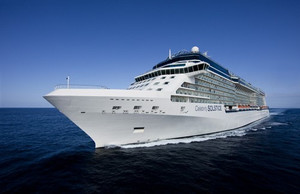
A high seas holiday doesn’t pose too many health risks overall, however, if you are planning to hit the high seas for more than a few days, there are a number of things to consider to ensure you have a happy and healthy time away from home. Here’s our top tips for smooth sailing.
Existing Conditions
If you have any ongoing health problems, make sure you choose a ship which has a doctor on board, and avoid cruises which venture to remote places, or have itineraries with too many days at sea. It is also advisable to get a full health check before you travel, just to make sure all is well.
Medications And Prescriptions
If you are taking any medications regularly, make sure you have enough supplies, and a little more, for your trip, just in case of any issues or delays. It is also worth carrying extra prescriptions with you for anything vital, in case your supplies are lost or destroyed, so you can fill them on board, or have them ordered in case of an emergency. Ships can also provide oxygen if necessary.
Visiting The Doctor
If you are likely to need to see the doctor on an arranged visit during your cruise, make sure this is organised through the ship before you head off. Any visits, whether routine or because of unexpected illness, will be charged, so ensure you have adequate health or travel insurance to cover it.
Cruising With Disabilities
If you have any disabilities, many larger cruise ships have staterooms which are specially equipped to handle wheelchair access. They do tend to book out early, so if you are considering a cruise make enquiries well before you want to travel. Cruise lines can also provide essentials including wheelchairs if they are booked in advance.
Special Diets
Larger cruise ships are also well suited to catering for anyone with special dietary needs such as low salt or low cholesterol, and more recently, gluten free. Most will feature dishes on menus in the main dining room as standard, but you are advised to check the availability for your particular problem before cruising, just to be safe.
Vaccinations
Travelling anywhere is a good reason to check up on your childhood vaccination situation, including tetanus. If your cruise is spending extended time in a less developed country and you may be eating ashore a lot, you should also consider having a hepatitis A shot.
Malaria
The risk of this, and other mosquito-borne diseases, is very low for cruise ship passengers, however, when travelling in certain parts of the world including Africa and areas of Papua New Guinea, take insect repellant with you in case its not available on the ship, and be prepared to use it and/or cover up in any at-risk areas.
Influenza
Hygiene on board ships today is usually first class, however, illnesses can break out on board, and are passed around easily including respiratory infections and colds. If you have any kind of ongoing respiratory condition, consider the time of year you are planning to cruise, and if a flu shot might be useful.
Norovirus
Norovirus is a common cruise ship illness, producing symptoms including nausea, vomiting and diarrhoea. The virus is transmitted several ways including person-to-person contact, and by way of contaminated surfaces. Ways to avoid norovirus include washing your hands before eating, especially at buffets and after using the bathroom. Also use hand sanitisers regularly in public areas, and on the gangway when coming back from port.
Traveller’s Diarrhoea
Besides Norovirus, this is unlikely to occur on a cruise ship, but it can happen if you eat ashore. One tip is to avoid anything other than bottled water when off-ship, also avoid undercooked meats and fish, and fruits unless you can peel them. Take an over-the-counter remedy with you, but if your symptoms persist beyond 12 hours or so, plan to see the doctor.
- By:
- Joanna Hall






